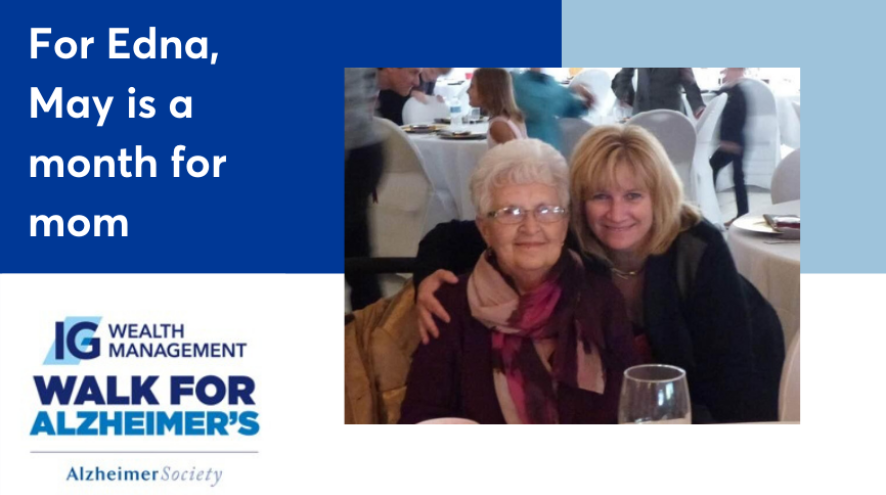Walk 2022 Profile: Zita Young

When the school bus arrived at Zita Young’s house in the morning the bus driver would count the kids as they came up onto the bus, often getting to nine before closing the door and being on his way. Zita had thirteen kids total, so even on school days there were little ones following her around, a few of them in cloth diapers. (An even more impressive number: Zita had 48 grandchildren and 48 great-grandchildren when she passed away 3 years ago—more now. That’s over a hundred descendants.) And yet she somehow managed to cook all the meals; wash the dishes; do books for the family farm, trucking, and contracting business; go to church every day of the week (she was Irish Catholic); and help out in the barns. She was at the Foodland when it opened and they considered her their best customer. In part because she filled three grocery carts.
Join people like Edna and support the Walk
From her daughter Edna’s perspective, there were always people around. Everywhere. Both her mom and dad grew up in Ennismore, so there were lots of cousins nearby, and friends of course. “We always had extra people around” Edna says. “Working on the farm, or kids who were hanging around. She fed everybody—wouldn’t take no for an answer.”
Zita’s philosophy was: the more the merrier. More people. More work. More funny moments. More sad ones. More life. As much life as they could squeeze in.
Being the youngest of the 13 kids, Edna saw her mom at the peak of motherhood. Calm, uncomplaining, always managing, always getting everything done. Coach, teacher, CEO. Zita was a true matriarch. “Mom was the first person we shared our problems with, and also our joys,” says Edna.
As Edna grew up her mom was always a constant. The farm was always there, the grandkids, the busyness and warmth. She couldn’t help but take it for granted. Her mom was always so organized, so on the ball, it was hard to imagine that one day she might have memory problems.
The signs weren’t obvious at first. Zita lost weight, and she started repeating herself. She had trouble with the TV converter. Then one day Zita and her sister-in-law came to visit Edna on a camping trip. Someone asked Zita if she wanted lunch and she said, no thanks, she’d already eaten. But she hadn’t eaten. And her sister-in-law spoke up about it. That explained why Zita been getting thinner, and it was the first sign of memory issues that Edna couldn’t shake.
Once Edna understood that the dementia diagnosis was terminal, that there was no turning back, the grief was immense. Shortly after getting diagnosed, Zita broke her hip, and her condition worsened. It all seemed to happen so fast. At the time, Zita was living alone at the farm—her husband and best friend, Joe, had passed in 1994. Edna’s siblings arranged a schedule so that one of them was always there to stay overnight at the family farm. They got help where they could, including through the Alzheimer Society, and cared for their mother in her home as long as they could. Eventually Zita’s dementia progressed to where she had to be moved to long term care.
For such a singular, personal experience, Edna was surprised to find that a number of her friends had similar stories—parents who were living with dementia—and seeing that it was so prevalent in the community has been a central reason for her participating in the Walk.
“I just really hope they find a cure. I don’t know what they have to do… but it’s heart-wrenching to watch someone go through it.”
Zita passed away in May, 2019. Mother’s Day is in May. The Walk is in May.
For Edna, “May is a month for mom.”
